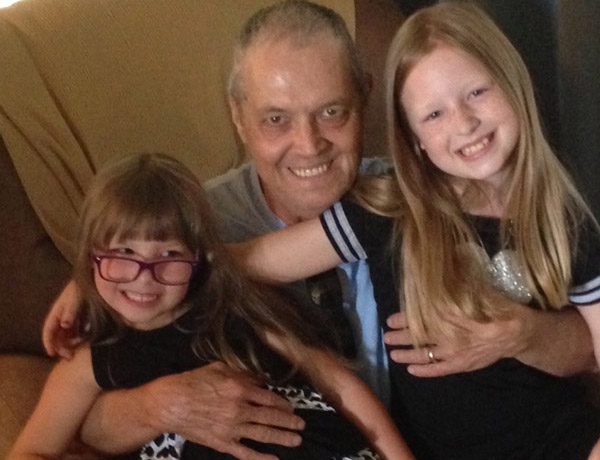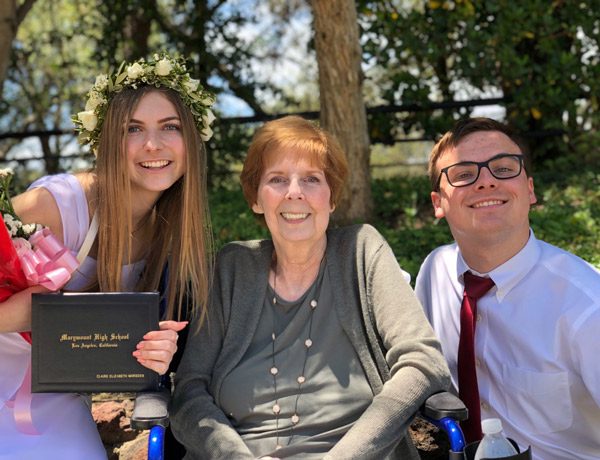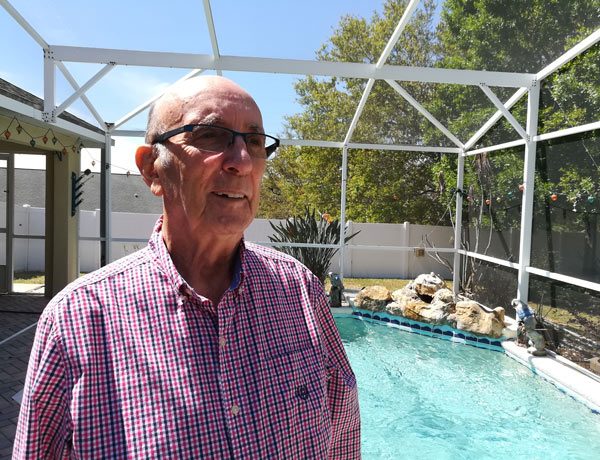Inspirational Mesothelioma Survivors
Mesothelioma survivors are living longer lives because of advancements in treatments, earlier diagnosis and clinical trials that are exploring new ways of treating this rare disease. Their stories provide inspiration and hope to people with this disease.
What You Might Expect After Receiving a Mesothelioma Diagnosis
Life expectancies for patients with mesothelioma are improving.
Twenty years ago, chemotherapy for this rare disease was thought to be hopeless, and performing surgery for it was considered risky and extreme. But new drug regimens and surgical techniques have put long-term survival within reach for many mesothelioma patients.
Mesothelioma treatment remains full of uncertainty, but specialists are counting more and more major successes. The stories of Randy Boudreaux, Kay Kilpatrick-Simmons and Rich DeLisle illustrate the wide range of experiences long-term mesothelioma survivors have.
Sometimes a top cancer center can make standard cancer therapies work for mesothelioma. In other cases, a novel treatment may work where traditional therapies have failed.
Every mesothelioma case is unique. The patient’s overall health and attitude are often as important as the characteristics of the cancer. And there is no substitute for a specialized doctor with experience treating your specific disease.
Ultimately, a cancer diagnosis does not change what is most important in your life, but it may put your priorities in clearer focus.
Stories Shared by Real Mesothelioma Survivors
Randy Boudreaux Regaining His Stride

Randy Boudreaux was not fortunate enough to be eligible for surgery when he was diagnosed with pleural mesothelioma. It looked like he might never get his stamina back, until a mesothelioma specialist found a way for him to try a new immunotherapy treatment.
Randy could not have surgery for mesothelioma because he had already gone under the knife for lung cancer years before. His local oncologist prescribed chemotherapy, but round after round of the toxic drugs seemed to do just as much harm as good.
The side effects of the chemotherapy stole his sense of taste and sapped his appetite. He lost 20 pounds, yet it became a struggle for him to stay on his feet.
Despite the aggressive treatment, the cancer kept strengthening its grip on his lungs. Soon Randy was struggling to catch his breath just walking to the end of his own driveway.
His wife, Jeanette, helped him through every symptom and side effect and took notes at all his doctor appointments. She could see his treatment plan wasn’t working, so she researched other options. At the Ochsner Medical Center in nearby New Orleans, she found Dr. Robert Ramirez.
Like many expert oncologists, Ramirez had been watching the headlines about immunotherapy closely. He saw the results a new drug called Keytruda (pembrolizumab) could have for lung cancer patients.
Keytruda wasn’t officially approved for mesothelioma, so Ramirez found a way to give Randy access to it through a special FDA program.
After a year on Keytruda, you could no longer tell Randy had cancer by looking at him. The flavor returned to his food, he gained back the weight he had lost, and he had no trouble walking a mile or two around his neighborhood with his wife and their dog.
Kay Kilpatrick-Simmons Beating the Odds

Kay Kilpatrick-Simmons was stunned by her mesothelioma diagnosis. At 67, she was fit enough to complete a two-day, 40-mile walking marathon with her daughter. Though the aggressive cancer sapped her stamina, she did not allow it to take her appreciation for life.
Kay set a goal to see her grandchildren graduate from high school. Focusing on this goal and maintaining a positive attitude enabled Kay to face the toughest obstacles of her mesothelioma treatment journey.
She underwent an extensive pleurectomy and decortication surgery. Follow-up radiation treatments caused serious lung inflammation that put her back in the hospital. She was hospitalized once again after chemotherapy caused kidney failure.
Despite it all, Kay makes a point of being grateful for what she has.
For one, she was lucky to find one of the world’s top mesothelioma surgeons, Dr. Robert Cameron of the UCLA Medical Center, only three miles from her home.
Many mesothelioma patients must travel hundreds of miles to find such a specialist.
Going to a specialized cancer center also allowed Kay to benefit from cryoablation, a novel treatment that uses liquid nitrogen to destroy mesothelioma tumor growth.
Thanks to the aggressive multimodal treatment she received, Kay got to celebrate the graduation of her first grandchild four years after her diagnosis and the graduation of her second grandchild six years after her diagnosis.
After a life full of nonstop work and exercise, Kay valued the new perspective she has, seeing life from a wheelchair.
She occupied herself by visiting with friends and watching the wildlife in her backyard. She kept her spirits high by watching comedies and writing about everything she was grateful for in her journal each evening.
And of course, she cherished every moment she got to spend with her family.
Rich DeLisle Made the Most of Life

Rich DeLisle had a saying: “I may have mesothelioma, but mesothelioma doesn’t have me.” From the moment he was diagnosed, he was determined to face the illness on his own terms and make the most of the time he had left.
The first mesothelioma specialist Rich saw recommended a highly invasive surgery that would leave him with only one lung.
Rich had always been an active man, winning dance contests with his wife in his 60s and going back to college in his 70s. The thought of losing half his stamina held no appeal, so he sought another opinion at the Moffitt Cancer Center in Tampa, Florida.
There he underwent a pleurectomy and decortication surgery performed by Dr. Lary Robinson. Rich complemented his cancer care with natural Graviola tea and CBD oil, and then he made plans with his wife, Aline, to travel the world.
Rich soon became an inspiration in the mesothelioma community. Between vacations with his five children, 20 grandchildren and nine great-grandchildren, he gave advice in mesothelioma support groups and exchanged letters with other people facing the disease.
After six good years, though, the cancer returned. For nine months, Rich tried chemotherapy as well as a couple experimental treatments, but the side effects were harsh and the results inconsistent.
Having had enough of the strain on his body and the stress on Aline, he made the decision to start hospice care. Specialists brought everything he needed to be comfortable at home, and Aline called all their friends and family.
Rich had the final good fortune to attend the celebration of his life. Loved ones and old friends he hadn’t seen in years traveled from across the country to visit him, filling his home with laughter and warmth.
 Do You or a Loved One Have Mesothelioma?
Do You or a Loved One Have Mesothelioma?